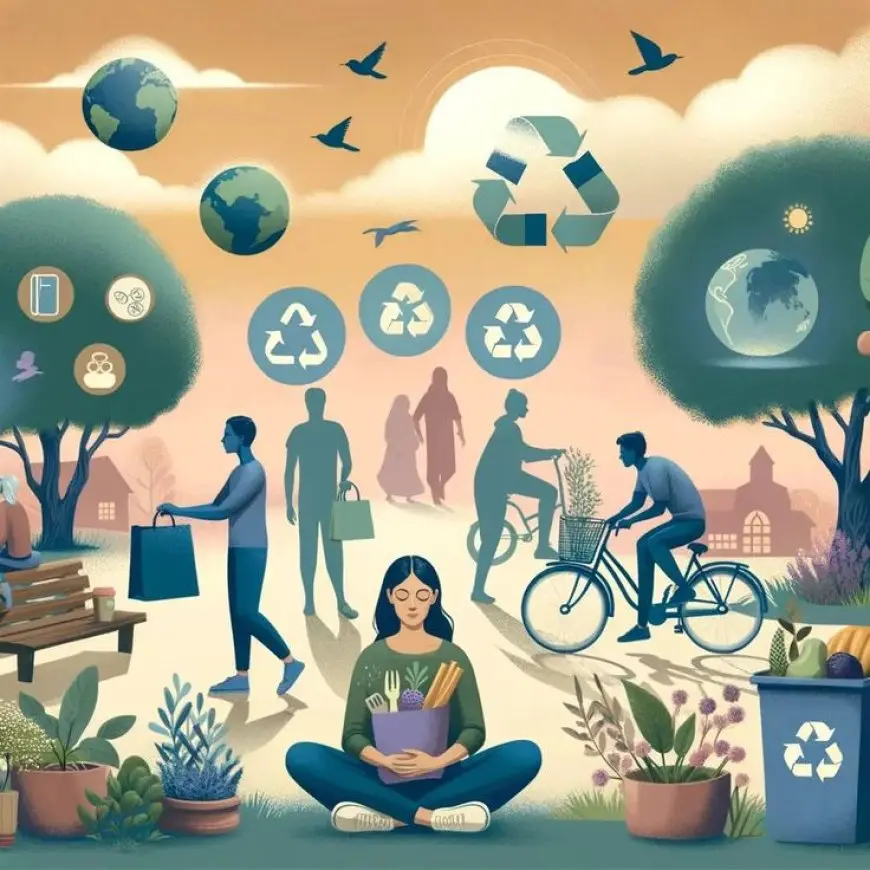Why Recycling Matters for the Environment
Why Recycling Matters for the Environment

Recycling plays a crucial role in preserving the environment and reducing the negative impact of human activities. As the world faces growing challenges related to waste management and environmental degradation, recycling has emerged as one of the most effective ways to address these issues. By recycling materials, we not only reduce the amount of waste sent to landfills and incinerators but also conserve natural resources, reduce energy consumption, and mitigate pollution.
Conserving Natural Resources
One of the primary benefits of recycling is its ability to conserve natural resources. Materials like metals, plastics, paper, and glass are all made from raw natural resources that require energy, water, and land to extract and process. By recycling, we reduce the demand for these raw materials, helping to preserve ecosystems and reduce the environmental impact of mining, logging, and other resource-extraction activities. This leads to less deforestation, habitat destruction, and disruption of wildlife.
Energy Savings
Recycling also helps save energy. The process of manufacturing products from raw materials consumes a significant amount of energy. For example, recycling aluminum uses up to 95% less energy than producing new aluminum from bauxite ore. Similarly, recycling paper requires less energy compared to the process of making paper from trees. By recycling everyday items, we can significantly reduce energy consumption and decrease the reliance on fossil fuels, which contribute to climate change.
Reducing Landfill Waste
Landfills are a growing environmental concern. When waste is sent to a landfill, it takes up valuable space and contributes to environmental pollution. Decomposing waste can release harmful gases like methane, a potent greenhouse gas that contributes to global warming. Recycling helps to divert a large portion of waste from landfills, reducing the strain on landfill capacity and minimizing harmful emissions. This not only helps to conserve space but also reduces the environmental damage caused by landfills.
Lowering Pollution Levels
Recycling reduces the pollution caused by the extraction, processing, and disposal of materials. By reusing materials and products, we reduce the need for new manufacturing processes, which often release pollutants into the air, water, and soil. For instance, the production of plastics involves harmful chemicals that can end up in waterways, harming aquatic life. Recycling plastics, metals, and paper helps to lower the demand for new materials, leading to a reduction in pollution.
Additionally, recycling paper helps to preserve forests and reduces the need for harmful chemicals used in paper production. By using fewer chemicals and processing fewer raw materials, the overall pollution levels are lowered.
Supporting the Economy
Recycling also has significant economic benefits. The recycling industry provides jobs, stimulates local economies, and supports the development of green technologies. By creating a circular economy, where products are reused and recycled rather than disposed of after a single use, we foster a more sustainable economic model. The growth of the recycling sector can help provide sustainable jobs in collection, sorting, and processing materials, as well as in the development of recycling technologies.
Moreover, recycling can lead to the creation of new products from recycled materials, reducing the need for new raw materials and lowering the costs of production. This, in turn, can lead to more affordable products for consumers and less dependency on imported materials.
Combatting Climate Change
Recycling plays an essential role in combatting climate change by reducing greenhouse gas emissions. The production of new materials, especially metals, and plastics, emits a large amount of carbon dioxide and other greenhouse gases. By recycling, we can lower the amount of CO2 released into the atmosphere, helping to mitigate the effects of climate change.
For example, recycling paper reduces the need for logging, which helps to maintain forests that act as carbon sinks, absorbing CO2 from the atmosphere. Similarly, recycling metals like steel and aluminum reduces the energy needed for their production, decreasing overall greenhouse gas emissions.
Raising Awareness and Fostering Responsibility
Recycling also encourages environmental awareness and social responsibility. When people recycle, they become more conscious of the environmental impact of their actions and the importance of conserving resources. This leads to a broader shift in mindset, where individuals, businesses, and governments work together to reduce waste, conserve energy, and protect the planet.
Education about recycling and sustainability practices can inspire people to make more environmentally conscious decisions, both in their personal lives and in their communities. By fostering a culture of recycling, we can create a more sustainable future for generations to come.
Recycling is a vital practice for protecting the environment, conserving resources, reducing pollution, and mitigating climate change. By recycling materials and reducing waste, we contribute to a healthier planet, lower energy consumption, and a stronger economy. Through collective efforts, recycling can help us move towards a more sustainable future, where resources are used wisely, and the planet’s ecosystems are preserved for future generations.







